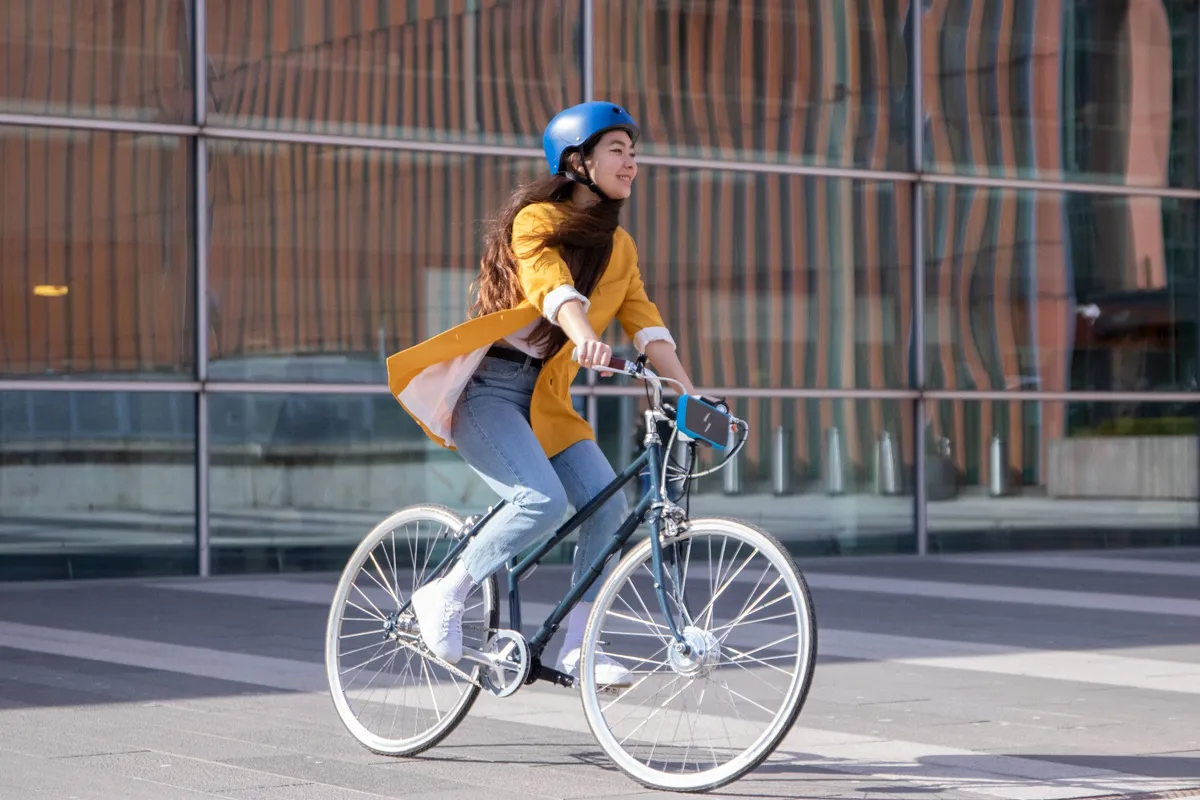From reducing carbon emissions and people’s reliance on cars to improving health and overcoming transport poverty, electric bikes offer the solution to many problems we face.
If you look at the uptake of electric bikes, and the research into people’s relationships with this mode of transport, it’s hard not to conclude they are already on their way to helping overcome these issues.
A Bicycle Association report from 2019 says that, in the Netherlands, Belgium and Austria, ebikes now account for over 30 per cent of bicycles sold annually. Across Europe, sales of ebikes are higher than any other electric vehicle.
It is a similar story in the USA, too. Research by the Light Electric Vehicle Association shows the ebike market is growing rapidly with the USA importing 463,00 bikes in 2020 and 790,000 in 2021, surpassing electric car imports in the process.
But there are still issues and attitudes to overcome in order to unlock electric bikes' full potential, particularly here in the UK.
Attitudes need to change

The uptake of electric bikes alongside industry and financial backing is promising, but it isn’t enough. There are still outdated and inaccurate attitudes towards electric bikes, and not just from the ‘electric bikes are cheating’ crowd.
Ian Bogost recently wrote in The Atlantic that electric bikes are “ontologically off” and are “trapped in the weird smear between pathetic, loser bicycles and pitiable, low-end motorbikes”.
Bogost may believe cars represent freedom while bikes do not, but the reality is that choosing to drive will only appear more absurd on a warming planet. Cars will not symbolise freedom in the future – if they still do anyway.
Cyclists are the obsession of many commentators in the press too, with anyone who takes to the streets on two wheels wrongly seen in some quarters as ‘colonisers’ or self-pitying victims insistent on their own safety.
Bogost’s article and the extreme attitudes in sections of the mainstream press may be strange to ebike advocates, but they show how desperately attitudes and assumptions held by the wider public need to change.
Problems we need to overcome

It’s also important to consider what needs to change around cycling, in general, to entice more people to take up this affordable and environmentally friendly mode of transport.
As BBC’s recent Panorama episode Road Rage: Cars v Bikes shows, there is something seriously flawed about roads here in the UK – a problem faced by electric bike and non-assisted bike users.
In short, cyclists are not safe on the road, with the Panorama programme reporting two cyclists die per week in the UK on average.
While recent changes to the Highway Code looked to make roads safer for cyclists, clearly more needs to be done in order to get people cycling.
Another issue faced by electric bikes is the requirement for supporting infrastructure to make them viable. This includes safer roads and cycle routes but also power supply to make riding an ebike viable.
The UK has 30,000 electric car charging points but only 16 ebike charging points.
Building infrastructure is one way to create the world we want to see in the future. Focusing on cycling infrastructure, while providing easier access to ebikes, will be a surefire way of shifting away from car culture and towards a greener, more equitable world.
Electric bikes can help cut emissions

Overcoming these barriers and making cycling more attractive to a broader audience, in general, would bring enormous benefits to individual lives and society as a whole.
Every journey taken on an electric bike is a win for the planet. Transport accounts for 24 per cent of global greenhouse gas emissions and here in the UK, 91 per cent of transport emissions are from cars alone.
Greener than non-assisted bikes, electric bikes can therefore play a huge role in reducing our environmental impact.
Research has shown there is a willingness from the general public to take up ebikes once exposed to their benefits.
In 2017, researchers gave 80 people in Brighton, UK, electric bikes for six to eight weeks. They found that on average usage was between 15 and 20 miles per week and it led to a reduction in car usage of 20 per cent.
At the end of the trial, 38 per cent of participants said they expected to cycle more and 70 per cent they would like an electric bike to be available in the future.
This should be of particular interest to those living in England. The Department of Transport has said 61 per cent of all journeys are completed by car. 68 per cent of these are less than five miles long and have a higher impact on air pollution than longer journeys.
Many people will be able to replace these short journeys with electric bikes, especially considering the rise in the market of electric cargo bikes, which can reduce dependency on cars.
However, unsafe roads, poor infrastructure and the high price of some bikes can be real deterrents to getting people on electric bikes.
Rolling out electric bike subsidies (which has been done for electric cars) feels like a frustratingly close solution that the government should be enacting immediately.
Electric bikes can change lives

It’s not just the environment that electric bikes can benefit. They can also improve people’s well-being and day-to-day existence.
On one hand, this is because electric bikes can help you get fit. But on the other, it’s because electric bikes can be useful for a wider range of people than non-assisted bikes.
Electric bikes can be good for people whose passion for cycling has been hindered by ill health.
But they are also good for people who have other health conditions that limit their engagement with cycling and would benefit from motor assistance. This includes people who have balance and coordination issues. The electric motors mean less force is required to start moving and consequently your weight doesn’t have to be moved off centre.
There are financial benefits, too. Budget electric bikes and conversion kits lower the price barrier to assisted riding and are cheaper than other modes of transport, which in turn helps to lift people out of transport poverty. This is particularly important considering the current cost of living crisis, which has already seen more people take to cycling.
The carbon footprint of an electric bike may be higher than a non-assisted bike, but their potential to get a broader mix of people cycling – and, ideally, out of cars – shouldn’t be overlooked.
The cycling industry agrees

The cycling industry also sees the potential of electric bikes and in a way that extends beyond just the bottom line.
Will Butler-Adams, CEO of Brompton, has said he believes electric bikes will make up the majority of bicycles in the future and electric bikes will form a large part of the brand’s activities when it moves to its new factory.
Specialized recently launched Globe Bikes, an electric cargo bike brand. Saul Leiken, the category leader for Globe, says electric bikes shrink cities and can make journeys by bike less daunting for your average person.
Look elsewhere and investment in brands such as Swytch and Rad Power Bikes shows that people are truly willing to get behind an electrified future.
Hurdles to overcome
For all the hurdles we need to overcome, we at BikeRadar remain optimistic about the good ebikes will bring to the world.
People across the board want to cycle more, so let’s make it as easy, safe and as rewarding as possible.
Provided we can lower the barriers to entry and make cycling in general safer and more appealing, electric bikes could play an important role in the future of cutting emissions and revolutionising urban mobility.
We will continue to watch closely and advocate for an ebike-friendly future however we can.
